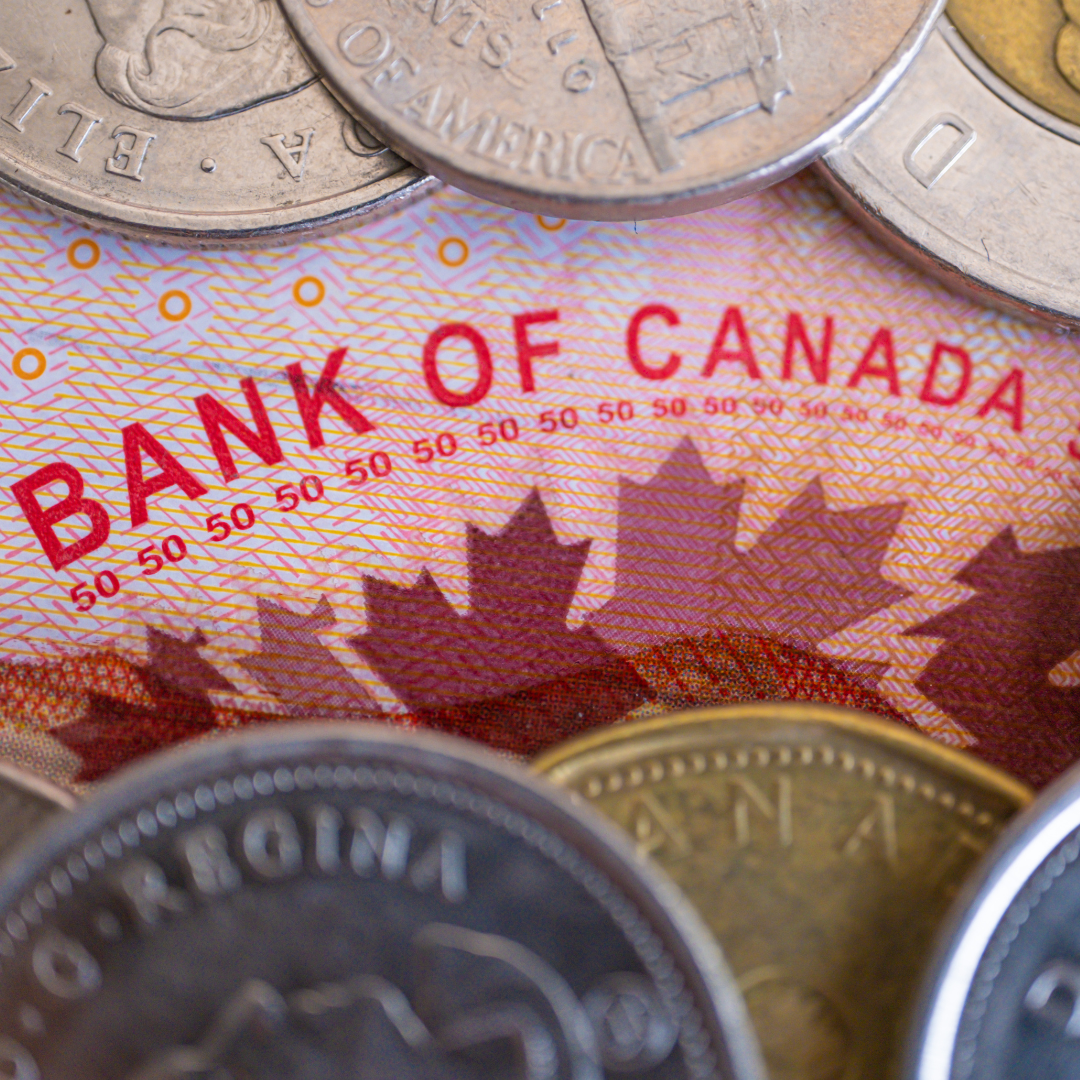Your Essential Guide To Moving To Canada
Financial Planning–Pre Immigration
Immigrating to Canada is an exciting opportunity filled with promise, but it also requires careful financial planning to ensure a smooth transition.
Understanding the various immigration pathways, estimating the initial settlement funds you’ll need, and being aware of proof-of-funds requirements are important steps in your pre-immigration financial journey.
This article will dive into these three essential components, offering insights and strategies to help you prepare for your new life in Canada.
Researching Immigration Pathways and Associated Costs
When considering immigrating to Canada, the first step is to explore the various available pathways. Each path has its eligibility criteria, processes, and associated costs, which can significantly impact your financial planning.
Immigration Pathways
- The Express Entry system is among the most popular pathways for skilled workers. It manages applications for three main programs: the Federal Skilled Worker Program, the Federal Skilled Trades Program, and the Canadian Experience Class.
Costs Involved:
- Application fees can range from CAD 1,325 for the principal applicant to CAD 1,325 for a spouse, with additional costs for dependent children.
- Language tests (e.g., IELTS) and educational credential assessments (ECA) can cost between CAD 200 and CAD 300 each.
- Medical examinations and police checks may also incur additional costs.
- Provincial Nominee Program (PNP): Each province in Canada has its own PNP, which allows it to nominate immigrants based on local labour market needs.
Costs Involved:
- Provincial application fees vary widely, typically ranging from CAD 250 to CAD 2,000.
- The language test costs and ECAs are like those for Express Entry.
- Family Sponsorship: If you have a family member who is a Canadian citizen or permanent resident, they may be able to sponsor you.
Costs Involved:
- The sponsorship application fee is CAD 1,050, plus an additional CAD 150 for processing dependent children.
- Medical exams and other related expenses may also apply.
Estimating Total Costs
When researching immigration pathways, it’s essential to estimate the total costs involved, including:
- Application fees
- Language and credential assessment fees
- Medical exams and police checks
- Travel expenses for moving to Canada
Creating a detailed budget will help you prepare financially and avoid unexpected expenses during the immigration process.
Estimating Initial Settlement Funds Required
Once you’ve determined your immigration pathway and understand the associated costs, the next step is to estimate the initial settlement funds you’ll have upon arriving in Canada.
These funds will help you cover essential expenses as you settle into your new life.
Key Expenses to Consider
- Housing Costs: Finding housing is a top priority upon arrival in Canada. Consider the following:
- Renting: Average rental prices vary significantly across cities. For example, a one-bedroom apartment in Toronto can cost around CAD 2,300 per month, while in smaller cities like Halifax, it may be closer to CAD 1,500.
- Utilities: The budget for utilities, including electricity, heating, water, and internet, ranges from CAD 20 to CAD 40 per month.
Temporary Housing Options
You may need temporary accommodation while you search for permanent housing upon arrival. Consider the following options:
Hotels or Motels: These options can be convenient for short stays, but costs can increase quickly. Depending on the location and amenities, expect to pay between CAD $100 and CAD $200 per night.
Airbnb or Short-term Rentals: Airbnb offers a variety of options, often at lower rates than traditional hotels. Depending on your chosen city, expect to pay AED 75 -50 per night for a private room or small apartment.
Hostels: Hostels can be cost-effective if you’re on a tight budget. For shared accommodations, prices typically range from CAD 30 to CAD 60 per night.
Long-Term Accommodation
Once you’ve settled in, you’ll need to find a permanent residence. When budgeting for long-term accommodation, consider the following:
- First and Last Month’s Rent: Most landlords require first and last month’s rent at lease signing.
- Security Deposits: A security deposit equal to one month’s rent is typically required and may be refunded upon satisfactory completion of the lease term.
Transportation: Depending on your location, transportation costs may vary.
Consider:
- Public Transit: Monthly transit passes can range from CAD $100 to CAD $160, depending on the city.
- Car Expenses: If you plan on driving, factor in the costs of purchasing a vehicle, insurance, fuel, and maintenance.
Food and Groceries: Grocery costs will depend on your family’s lifestyle and dietary preferences. A person can expect to spend between CAD 200 and CAD 400 per month on groceries.
Health Insurance: As a newcomer, you may not have immediate access to Canada’s healthcare system. Consider obtaining private health insurance for the first few months, which costs between CAD $15 and CAD $300 per month per person.
Creating A Settlement Budget:
Compile a comprehensive budget that includes these expenses, aiming for at least CAD 5,000 to CAD 10,000 in initial settlement funds, depending on your family size and chosen city.
As you establish yourself in Canada, this budget will act as a safety net.
Understanding Proof of Funds Requirements for Different Programs
Many immigration programs require proof of funds to demonstrate that you can support yourself and your family upon arrival in Canada. Understanding these requirements is essential for your financial planning.
Proof of Funds Requirements
Express Entry: You must provide proof of funds for the Federal Skilled Worker Program and the Federal Skilled Trades Program unless you have a valid job offer in Canada. The required amounts are as follows:
- Single applicant: CAD 13,310
- Family of two: CAD 16,570
- Family of three: CAD 20 371
- Family of Four: CAD 24,733
- Additional family members: CAD 4,613 each
Provincial Nominee Program (PNP): PNP requirements vary by province. Some provinces may require proof of funds like Express Entry, while others may not have specific requirements, especially if you have a job offer.
Family Sponsorship: Family sponsorship programs typically do not require proof of funds, as the sponsor must demonstrate their ability to support the sponsored family member financially.
Preparing Your Proof of Funds
To demonstrate your financial stability, prepare documents that clearly show your available funds, such as:
- Bank statements
- Investment documents
- Proof of property ownership
- Employment letters indicating salary
Ensure these documents are up to date and accurately reflect your current financial situation.
Pre-immigration financial planning is a critical step in ensuring a successful transition to life in Canada.
By researching immigration pathways and associated costs, estimating the initial settlement funds required, and understanding proof-of-funds requirements, you can build a solid financial foundation for your new life.
This article provides a comprehensive overview of pre-immigration financial planning, empowering readers to navigate their journey with confidence.
Key Considerations and Strategies To Help Ease Your Financial Journey
It’s essential to research cities where you plan to settle. Understand the required expenses, such as housing, transportation, and groceries. Use websites like Numbeo or Expatistan to get an overview of living costs.
Investigate the job market in your field. Websites like Job Bank Canada can provide insight into average salaries and demand for your profession.
Familiarize yourself with the local culture and community resources available to immigrants to help ease your transition.
Understanding the Banking Process: Banking in a new country can be challenging, especially if one is unfamiliar with the system.
Here are the steps to simplify the process:
Research Canadian Banks: Invest in institutions such as TD, RBC, or CIBC. Compare their account types, fees, and services for newcomers.
Open a Bank Account: Upon arrival, open a local bank account as soon as possible. To facilitate the process, please bring the following essential documents: your immigration papers, identification, and proof of address.
Understanding Currency And Fees:
Familiarize yourself with Canadian currency and associated banking fees. If you transfer money from your home country, be sure to ask about international transaction fees.
Securing Essential Documents
Gathering and securing necessary documents is crucial for a smooth immigration process. Key documents include:
- Identification: Ensure valid identification, such as a passport and any required immigration documents.
- Financial documents: Keep copies of your financial records, such as bank statements and proof of income, as they may be required for job applications or when setting up a bank account.
- Health Records: Keep your health records up to date, as you may need them when accessing healthcare services in Canada.
Estimating Moving Costs
Moving to another country involves various expenses that can quickly add up. Consider these factors when estimating your moving costs:
- Transporting Belongings: Research moving companies and obtain quotes for shipping your belongings. Consider downsizing to reduce costs; selling items you no longer need can also provide additional funds.
- Travel Expenses: Budget for airfare, taxi transportation and accommodation during your trip
- Initial Settling Costs: Account for initial expenses upon arrival, such as temporary housing, groceries, and transportation.
Budget For The Transition
Creating a budget is essential for managing your finances during this transition. To develop a practical budget:
- Estimate Your Income: Research potential job opportunities and estimate your income using market data; factor in any financial support or savings you have.
- List Expenses: Categorize your expenses, including housing, transportation, food, and healthcare. Anticipate one-time fees, such as setting up utilities or purchasing new furniture.
- Build an Emergency Fund: Aim to set aside at least three months’ living expenses to cover unexpected costs during your initial adjustment period.
Seeking Financial Assistance And Resources
Many organizations and programs exist to support newcomers in Canada. Here are some options:
Settlement Agencies: Many cities have settlement agencies that offer free services, including financial literacy workshops, job search assistance, and housing support.
Government Resources: Explore government programs that provide financial assistance and support for newcomers. The Government of Canada’s website is a great starting point.
Community Support: Join local immigrant associations or online forums to connect with others who have faced similar challenges. They can offer valuable advice and support.
By conducting thorough research, understanding the banking process, securing essential documents, estimating moving costs, budgeting effectively, and seeking assistance, you can set yourself up for a successful transition.
Stay tuned for Part Two of our series, where I write about the financial challenges that immigrants face as they settle into their new lives in Canada.
This series will provide an overview of the economic considerations of immigration to Canada.
Check out this article:https://masteringpersonalfinances.com/financial-mistakes-moving-to-canada/





